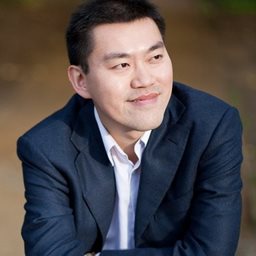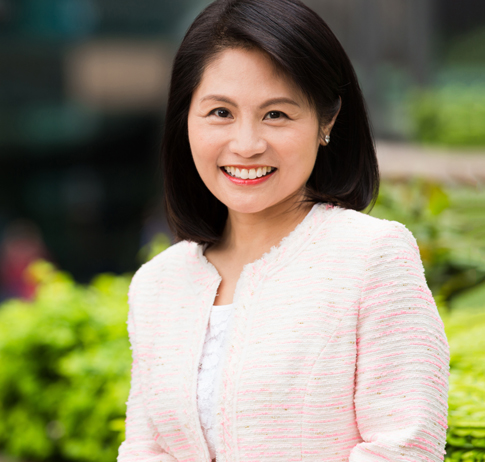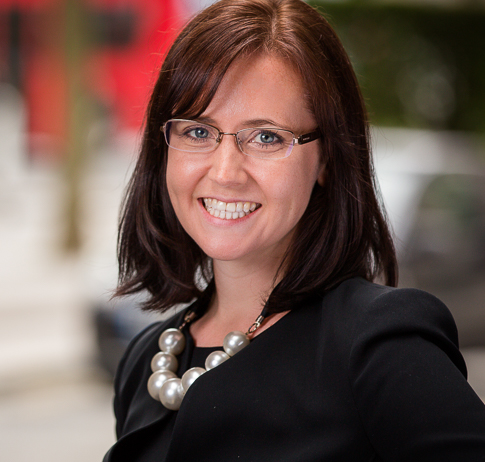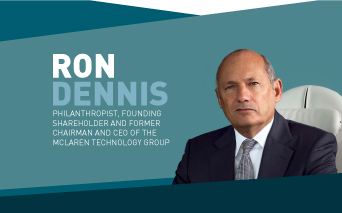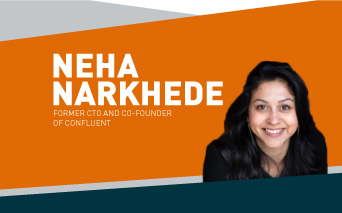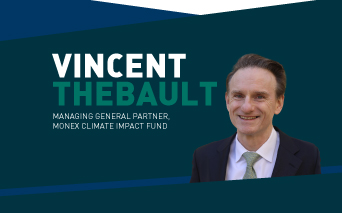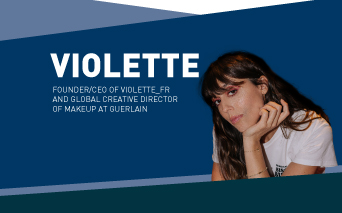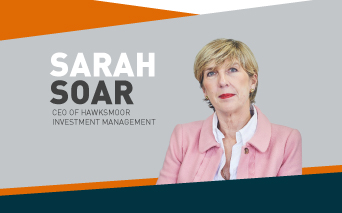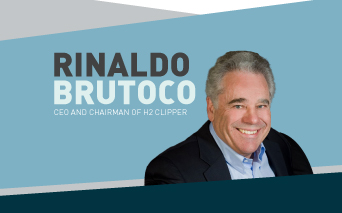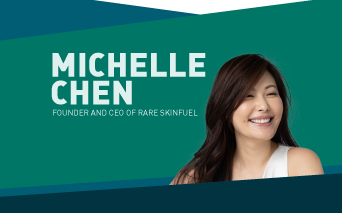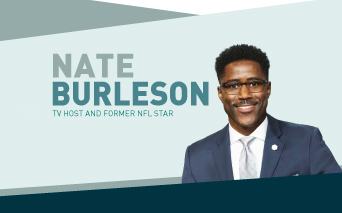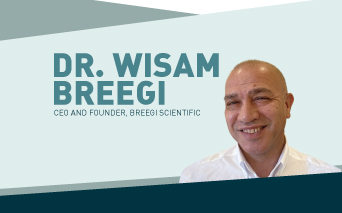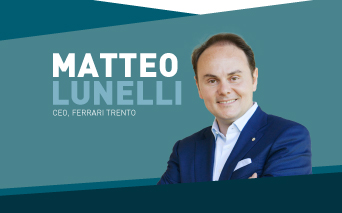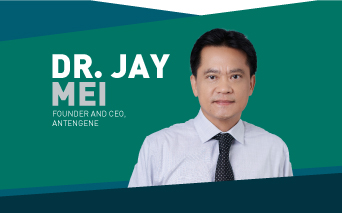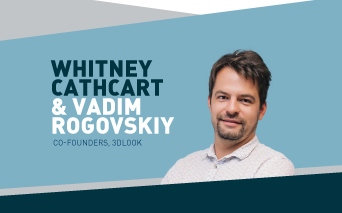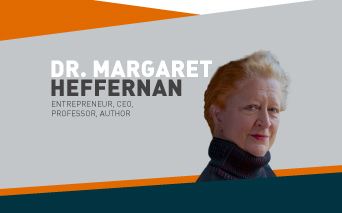Podcast
International impact investor, Mark Cheng, talks social entrepreneurship, business model innovation and purpose
7 May 2021 | 26 minute read
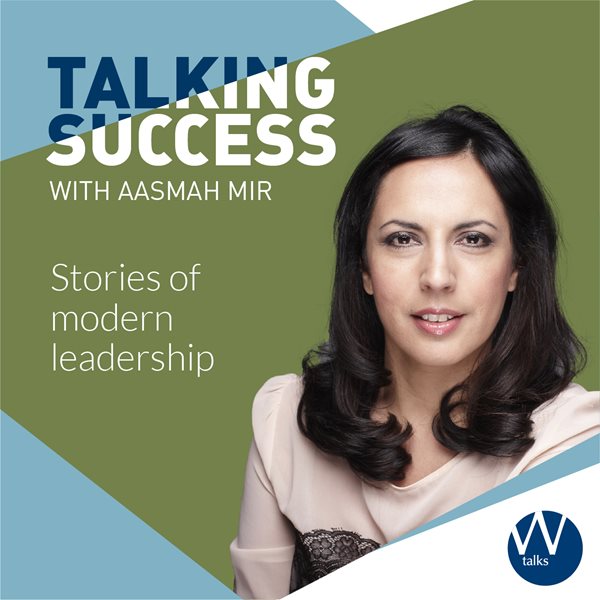
Episode 1 of Talking Success with Aasmah Mir
Aasmah talks to Mark Cheng about his journey into impact investment, why he is passionate about his work and the feeling of success when your investment helps millions of people. To hear more stories of success, click here.
Podcast host: Aasmah Mir
Aasmah Mir is an award winning broadcaster and journalist. She currently co-hosts the Breakfast Show on Times Radio and writes a regular column for The Times.
Guest: Mark Cheng
Mark Cheng is a leading impact investor who has invested in and helped raise over $250million for social ventures – purpose driven companies with a mission to achieve social and environmental goals. He is a coach and advisor to many social enterprise leaders in areas including education, healthcare, sustainable agriculture and clean energy. Mark is the founder of Social Innovation Circle, a partnership of social innovators driving new business models for social impact, and a member of the Leadership Group at Ashoka, the global network of the world’s leading social entrepreneurs. Ashoka supports more than 4,000 CEOs and founders of social sector organisations through its prestigious Fellowship program in over 90 countries.
Prior to becoming an impact investor, Mark was an investment banker at Deutsche Bank and later at AMBAC Assurance, an insurance company where he was responsible for a credit portfolio of over $8billion of infrastructure lending. He is a guest lecturer in Social Entrepreneurship at the University of Hong Kong, and writes and speaks frequently on social entrepreneurship and finance. He is the author of the Social Investment Toolkit, a manual for start-up social entrepreneurs in how to raise investment. Mark is based in Hong Kong and London.
Note: We have provided a transcript of the discussion in this podcast if you are unable to listen to the audio version. This transcript is generated using a combination of speech recognition software and human transcribers and may contain errors.
Aasmah Mir (00:02) Welcome to ‘Talking success’ with Aasmah Mir in partnership with Withers, the international law firm.
Margaret Heffernan (00:10) I like to do work where I think I really have something special to bring.
Dr Jay Mei (00:15) I never dreamed myself to be a CEO one day and actually that was not my career objective.
Whitney Cathcart (00:22) There’s so many highs in a day where you feel like, gosh, we’ve got this. And then there’s lows where you’re thinking, oh my gosh, how will you pay people tomorrow?
Aasmah Mir (00:33) I’m Aasmah Mir and in this series, I’ll be meeting successful thought provoking people from a range of different sectors and businesses worldwide from CEOs and tech entrepreneurs, to international leadership experts. I want to hear about those crucial moments of their careers. The moment they decided whether to take the plunge and follow their dream, how they responded to a threat that could have cost them everything, or even that first profound inspiration that originally shaped their ambition to succeed.
We all face crunch points in our lives. What matters is what we do next. So in these conversations I’ll be drawing inspiration right from the top, picking out the patterns, analysing the insights and finding out more about how successful people make the most of the moment, whether in times of adversity or when fortune smiles.
Mark Cheng (01:26) For me, success is when my clients tell me about the social impact that they’ve achieved. Nothing beats that feeling. There’s nothing like that.
Aasmah Mir (01:37) In this episode, I’m speaking with impact investor, Mark Cheng. He began his career in investment banking before moving on to work with social entrepreneurs, meaning people who are starting businesses which aim to help others and address inequality. He currently spends some of his time working with Ashoka, a global foundation helping socially conscious entrepreneurs raise investment. Mark, welcome.
Mark Cheng (02:01) Thank you very much. Great to be here.
Aasmah Mir (02:03) I’m going to start off with quite a simple question and I’d be really interested in the answer. If you wrote a self-help book, what do you think it would be called?
Mark Cheng (02:13) Yeah. Thank you. That’s a great question. I think if I was to pick a theme, it would be probably something like ‘Finding purpose’. And the reason for that is because I’ve advised a lot of different types of entrepreneurs and the ones that really come through and succeed are the ones that are purpose-driven, you know, they have a mission behind what they do beyond just making profit. And that’s been a common theme throughout my whole career.
Aasmah Mir (02:38) Now, how did you end up working with social entrepreneurs? What was your path there?
Mark Cheng (02:45) Yes, well, it’s actually a surprise to me that I stumbled into this field. I mean the first 10 years of my career was very much just working in an investment bank. And then one day somebody gave me a book to read and it was the autobiography of a professor named Muhammad Yunus. Muhammad Yunus was working in Bangladesh and he’s a teacher of economics. And as an economic experiment, he was asking the question of why do people stay poor? And one of the answers that he came up with was that it’s because poor people don’t have access to credit on the same terms as wealthy individuals. And so purely as an experiment, he began to lend small amounts of money to predominantly women borrowers. And this was incredibly radical, you know, in Bangladesh, in the early 90s. Yes, well, it’s actually a surprise to me that I stumbled into this field. I mean the first 10 years of my career was very much just working in an investment bank. And then one day somebody gave me a book to read and it was the autobiography of a professor named Muhammad Yunus. Muhammad Yunus was working in Bangladesh and he’s a teacher of economics. And as an economic experiment, he was asking the question of why do people stay poor? And one of the answers that he came up with was that it’s because poor people don’t have access to credit on the same terms as wealthy individuals. And so purely as an experiment, he began to lend small amounts of money to predominantly women borrowers. And this was incredibly radical, you know, in Bangladesh, in the early 90s. And he showed that it could work, it could work as a business model and on the back of that, he actually launched an entire bank for the poor called the Grameen Bank, which then went on to provide funding for millions of households, you know, and launched the whole micro-finance movement for which 20 years later he wins the Nobel peace prize.
(03:53) And he wrote that story down in his biography. And I just thought that was just an incredible story. I didn’t realise that you could even do that. And so that got me thinking about how you could use finance as a way to help people in situations like poverty or facing other social issues. And that idea sat with me for a number of years, but I didn’t really do much about it. And then what made the difference and finally sort of kicked me out and got me going, was the financial crisis in 2008. And at that time I was now working as an executive in an insurance company. And when the financial crisis swept around the world, basically my company had no business, for several years, in fact. And so I went to my management team and I said, look, clearly things are going to be down for a very long time to come.
(04:41) I would really like to take a sabbatical during this time and why don’t I go away and come back in a year? And what I’m really am keen to do is to explore the idea of social investment or impact investment. And what I did was I began to volunteer with a number of social sector organisations and social sector leaders. And one of the organisations that I came across was this network called Ashoka. It’s a network of social entrepreneurs and it’s been in existence for 40 years. And the idea was to go and find individuals who have developed a brilliant way of tackling a particular social problem. So it might be a teacher, for example, who’s discovered an incredible way to teach kids in India, in rural villages where they’ve got no textbooks, or it might be a doctor who’s discovered a way to do healthcare, in slums, you know, working with extremely low income communities and they’ve devised business models, they’ve devised approaches that can really make a huge difference that no one’s ever heard of. And so I went to Ashoka and I said, ‘listen I’m a finance person, I come from the business world, I’ve got no idea whether you would have any need or, or your fellows, or, you know, the entrepreneurs that you work with would have any need for, for someone like myself. But I’m very happy to offer that…’
Aasmah Mir (05:58) I bet they bit your hand off though really didn’t they?
Mark Cheng (06:02) They kind of jumped on me very quickly and said, ‘come on in’.
Aasmah Mir (06:05) What would you say of all the projects that you’ve worked on was the most exciting, rewarding one that you worked on?
Mark Cheng (06:15) Well, the very first entrepreneur that I worked with in the Ashoka network was really the one that opened my eyes up to the possibility of what could be done in this space. That was a gentleman named David Green, who’s a healthcare entrepreneur. So I met David back in 2008, and he was telling me about a project that he had launched in India to provide medical equipment for cataract surgery. And what he’d done is he’d found a way to reduce the cost of the lenses that you use in cataract surgery by 98%. I mean, it was just absolutely staggering. And as a result of that, they were able to sell lenses for less than $5, which previously would have cost several hundred. And that was what enabled surgeries in India for even very, very low income communities to increase from at that time in the early nineties, several hundred thousand to close to five million today.
(07:06) And so when I met David, I said, ‘look, you’ve already done incredible things. What, what more do you need?’ And he said, ‘well, what we desperately need is finance. We need access to more capital so that we can take this great business and really scale it up around the world. There are so many different places that desperately need this technology.’ And so I worked with David and what we did was we launched an eye care fund, which was specifically designed to lend to projects that could utilise this technology. And that was one of the first impact funds of its time. This was back in 2010. And at the time we just had no idea whether investors would even want to buy this. So it was a pretty risky or at least unusual proposition. And so I thought maybe we’d get a few million at best and ended up raising 30 million US dollars for that fund, which went on to very successfully make these loans, all of which now have been fully repaid with interest and it’s been tremendous.
(08:03) And so when I saw that was possible, that there were investors who really, really liked this idea of putting their money to work for a good cause, as well as being able to support businesses to become sustainable, that was when I realised that this was something which was urgently needed and that there were, you know, thousands of entrepreneurs, like David who needed this help. And, you know, they were doctors and nurses and teachers, they weren’t finance people, they weren’t business people. So somebody who could speak that language and then speak to investors and help them to present their business models at the same time as showing that you could create social impact with that, that was really what made me change my whole career. And so, you know, I was due at the end of my sabbatical year to go back to my insurance company and I went back to them and said, ‘listen, you know, my experience this year has so changed my perspective on what I think is doable that I, you know, I don’t think I’m going to be coming back’. And that was 11, 12 years ago. So since then I have worked with about 90 organizations and helped raise over a quarter of a billion dollars now in finance for them.
Aasmah Mir (09:11) And in terms of deciding what you yourself want to either invest in or help to raise the finance for, does that generally follow a pattern that it’s the subject matter, it’s something that speaks to you personally? Or is it more to do with the kind of economics of it, the business model of it?
Mark Cheng (09:30) Yes. So I think it’s a combination of both. Yes, it’s absolutely driven by personal passion, but I think there’s two more things that have to be brought to the table. The first is discovering an interesting investment thesis behind these projects. So it’s not enough just to have passion, it’s not enough just to be enthusiastic and wanting to make a difference. You have to have a very in-depth understanding of how a particular solution can make a difference. So in that sense, it’s no different from any other venture capital or investment thesis, right? So for example, if we take something like affordable medicine, many of the businesses that we’re supporting, they don’t even use hospitals and clinics. They put smartphones in the hands of doctors and nurses, and they have teams that go out into slums and they do diagnostics, you know, directly, for example. So they basically find a way in which to use technology, to overturn a disadvantage that a community might have.
(10:26) So I’m looking for that investment thesis. Has the entrepreneur found a way to sort of flip the table in order to be able to deliver something in a new way? The third aspect of this is really around innovation. Technology and the business models that we’re now seeing enable social provision to be done in a way that could never have been possible before. So let me give you one example of that. One of the earliest businesses that I began investing in was solar energy, specifically solar energy for the so called ‘off-grid market’. In other words, that there’s no power grid anywhere near the villages that we want to electrify. These would be places in Africa, Sub-Saharan Africa, in rural Bangladesh, Southeast Asia and so on. And so you have to come up with a very different solution for that. And the solution is solar panels.
(11:16) So when we started to get mobile phones in villages and put them in the hands of people who could then make mobile payments for their solar panels, suddenly you had a business model that unlocked potentially a trillion dollar market for these communities. And it was the marriage of that technology with the new business model, combined with doing that for serving a social mission that was really the game changer. You know, I can’t remember who it was, who said it, but, you know, there’s this idea that the world’s biggest problems are also the world’s biggest business opportunities. And that’s what I see for the field of impact investment is that, you know, this isn’t just doing good. This is actually a huge, huge market opportunity to really transform livelihoods and economies.
Aasmah Mir (11:58) That’s a really interesting thought, you know, the world’s biggest problems are the world’s biggest business opportunities, and I’m sure that many people are aware of this and approach the issues with that in mind. I wonder, do you have, I mean, you talked about education, you talked about solar energy, is there a particular area that would be the dream project because it’s something that is a huge problem globally?
Mark Cheng (12:23) Well, I think climate change is the big one because climate change impacts so many, well everyone on the planet really, and it touches on so many different areas. But if I was to dig deeper into that and identify one sector in particular that I think is really at the heart of so many of the social challenges and issues that we face, it would be the food system. And the reason I say that is because food is really the base of so many social problems and issues that we face. It’s about land management. It’s about conservation. It’s about nutrition. It’s about healthcare. So if we can fix some of the challenges and inequities in how we produce and consume food, I think that would unlock many, many benefits that would ripple through our systems.
Aasmah Mir (13:10) You’ve spoken about the kind of key areas that you see a lot of organisations, companies etc looking for investment. I wonder about, for Asia more generally, what are you seeing is the key motivations for investors in Asia?
Mark Cheng (13:27) Well, I think Asia is going through major, major shifts right now influenced by everything from the dominance of China as the up and coming, and indeed strongest economy in this part of the world, through to all the kind of social challenges from climate change, obviously, but also issues like aging population, which is a significant social challenge for most of the East Asian economies. And then a very interesting trend that we’re seeing right now is the rise of Asian philanthropy. Asia has always been a strong area of philanthropy to drive social change, but historically many wealthy individuals and families have tended to give very locally. They tend to give back to family villages and local causes and so on. And what we’re seeing is that a younger generation of entrepreneurs who are acquiring wealth earlier want to give in more imaginative and potentially impactful ways. And so that’s the wave that we’re seeing, looking at impact investment. And so that ties in, I think very well with the sort of entrepreneurship theme across Asia as well. These are the most entrepreneurial economies on the planet and so the idea of investing entrepreneurially for social impact is an idea that East Asia is very ready for.
Aasmah Mir (14:47) I wonder if you could tell me about a project that perhaps threw up a difficult situation for you, either financially, morally, whatever it might have been and how you dealt with it.
Mark Cheng (15:01) I think that I would probably go back to my solar energy example. This was back in 2008, 2009, and I was working with a group of solar energy entrepreneurs who were passionately interested in the idea that – look there’s 2.2 billion people on the planet who don’t have access to any energy at all. You know, they, they live in areas that are off-grid, so they’re essentially excluded from the world economy. And so we were exploring different solutions of how you could electrify the off-grid market. And at that time, solar energy was probably six to seven times the price of conventional energy. So we were very, very focused on how to launch businesses that could tackle this issue. And we just basically ran into a brick wall, right, even though we had faith that the market was needed and the potential was there.
(16:02) And so at that time, it was really launching a series of businesses that, you didn’t quite know how it would work, and we didn’t actually have a playbook for how to do it. And indeed there was even a market crash in solar energy around 2010 and 2011. So you were launching businesses at a time when the rest of the world was going, you know, ‘solar energy, are you crazy?’, you know, those businesses were shutting down fast and furious all over the place. Right? And so what happened was that we continued and we began supporting companies that were doing this. And then two things changed the game completely. One was a dramatic reduction in the world price of solar. And this was a result of technological breakthroughs that took place, but in the space of eight years, the price of solar fell by 90%.
(16:50) And what it meant was that suddenly these products began to become viable and effective and cheaper than the competition. And suddenly it became really, really possible to compete with fossil fuel. And so market conditions changed and these businesses became profitable and successful. But the other thing that changed was the technology. You know, once everyone had mobile phones in the communities that we were working with, we could introduce new business models, like pay as you go, where you don’t have to buy the equipment upfront. You can just simply pay for it when you have cash and you can pay for it on a mobile phone. Right? So the technology changed the business model and the business model essentially unlocked the entire industry and that made it happen. So what that taught me was two things. The first is that if you believe in the market potential and the vision, sometimes it is worth continuing and carrying through even if you can’t quite see your way through to the next piece. My second insight is you’ve always got to be on the lookout for where the innovation is going to come from. There is always the potential, the adjacent possible, which if you could just bring that into your sector, might transform your bottlenecks and really open them up. And that’s exactly what happened for us in that sector and that really, really changed the way I think about business modelling and innovation.
Aasmah Mir (18:06) I’d like to talk to you about the nature of success and what that word, that concept, that feeling means to you. Is there a point in your life, in your career where you felt your most successful?
Mark Cheng (18:24) Yes, for me, success is when my clients tell me about the social impact that they’ve achieved. When I hear the CEO of Aravind Eye Hospital in India say that this year they succeeded in providing surgeries to five million people who needed it, nothing beats that feeling. There’s nothing like that, and I compare and contrast that, when I was an investment banker, I worked with companies that were raising billions of dollars and we used to celebrate, you know, when a company, you know, a Fortune 500 company had done their latest $1 billion share issuance, and that felt good, but that isn’t even one fraction, one hundredth of what it’s like when an entrepreneur tells you how many kids they got into school and helped to get an education, you know, in rural Bangladesh or how many households were electrified that year because of the work that we did.
Aasmah Mir (19:21) But just think, if you hadn’t read that book, you might still be operating on the previous definition of success. Or do you think that you would have found out about this at some point and the pull would have been too much?
Mark Cheng (19:35) That’s a great question, and I actually don’t know the answer to that. I think that Professor Yunus’ book was certainly a major catalyst for me because it opened up the possibility that you could be, you know, a banker who works for, you know, social causes. And at that time this was a very, very far out idea. Having said that I think the idea has now become much more mainstream and I think that’s an incredible sea change from 10 years ago.
Aasmah Mir (20:04) Absolutely. You’ve had an interesting kind of life time and career because I mean some people might, you know, might view it as kind of two quite distinct halves even though they were obviously linked by investment. If you look over your career, can you pick out maybe two key lessons? Is there anything that you remember thinking ‘okay, well, I’ve learned that and I won’t do that again’.
Mark Cheng (20:29) I’ve probably had several lessons. The first one is probably something around persistence. You know, when raising funds for the early impact funds back in 2008/2009, I pretty much visited every venture capital firm that was out there in Europe and the United States. And it was bringing a portfolio of companies to them to look at. And universally, we were told at that time, ‘sorry, but we don’t do social. You know, this is basically a charity that you’re talking about. You know, this is not going to be an investible asset class and come back when you’ve got something that can generate a hundred X returns or 50 X returns in that space’. And markets change very fast, you know, perceptions of what is investible and what is not investible change very fast. So if you really believe in the company, if you believe in the mission, if you believe in the market, and if you believe in the entrepreneurs who are driving that, then you know, don’t give up.
(21:28) So that’s lesson number one. And then lesson number two would be, you have to be willing to constantly change your plan and your business model and experiment. You know, so there’s solar energy companies that we launched and succeeded. I think we rewrote the business plan probably about 10 different times, in the space of five years. It is not about coming up with a 10 year vision and then just executing it, regardless of what happens in the world. It is about having a vision of what the market could be. And then it is being agile enough to adapt and shift and to grab every opportunity that you can, until that vision becomes a reality in whatever shape or form it ultimately takes.
Aasmah Mir (22:10) I’m always fascinated by how people, and specifically successful people, make decisions. Because they’re clearly making some, if not all correct decisions. So how do you approach decision-making?
Mark Cheng (22:23) Yeah, I think it has to be a combination of head and heart working together. It’s my gut feel about the quality of the management team and the CEO in particular. But a great team is not enough by itself. The team must have developed a really important insight into how they’re going to execute the idea, and you have to cross check your ideas all the time. So we have a panel of experts that we work with, so that in any given moment, I, you know, if I’m looking at a new health care innovation, for example, there are certain people that I will always call up and say, what do you think about this? You know, can we use block chain this way for this particular application? Is this going to work in the Kenyan market or the Nigerian market or wherever it might be. But end of the day it is your gut that ultimately drives it.
Aasmah Mir (23:10) Very interesting. Are you now ready Mark for your quick fire round of questions?
Mark Cheng (23:17) Yeah, sure, let’s do this.
Aasmah Mir (23:18) Okay. What one word would you say sums up your working style?
Mark Cheng (23:25) Empathetic
Aasmah Mir (23:26) Okay. What’s your favourite time of the workday?
Mark Cheng (23:29) Early morning.
Aasmah Mir (23:31) How early?
Mark Cheng (23:32) I try to get going by eight o’clock.
Aasmah Mir (23:36) Okay, that’s good I thought you were going to say 4am or something like that.
Mark Cheng (23:39) No, not so early. Just because I try and get my work done before meetings begin and then you lose the rest of the day.
Aasmah Mir (23:48) Absolutely. I know the feeling. If you had a magic wand, what one thing would you change about the investment system?
Mark Cheng (23:55) The one thing that I would change is that I would love it if investment managers would appreciate that their clients don’t just want them to maximise profits and financial returns, but that they really care about social and environmental impact as well. And that if we could recognise that these are worthy objectives alongside making money and making profit, I think we would have a financial system that really contributes to social good in the way that everyone actually wants, as opposed to simply driving things for the sake of short term profits.
Aasmah Mir (24:36) What’s the thing that most frustrates you in a working environment?
Mark Cheng (24:42) I think bureaucracy and too many meetings.
Aasmah Mir (24:49) Amen to that, absolutely. And if you weren’t an impact investor, what do you think you would be doing instead?
Mark Cheng (24:59) I would be very interested in being a coder in the world today, I think technology is incredible. And in particular, what’s happened in the space of artificial intelligence. And then completely at the other end of the spectrum, I’m the son of two doctors and medicine has always really interested me. And so I would happily have become a doctor if I hadn’t gone into finance.
Aasmah Mir (25:22) Fascinating. Thank you so much, Mark. Thank you.
Mark Cheng (25:25) Thank you very much.
Aasmah Mir (25:30) What I loved about talking to Mark was this is a man who deals with huge sums of money, but not just in the kind of context of profitability and the corporate world and the bottom line, but he’s injecting money into things that affect all of us like global poverty, like education, like climate change and I just take so much hope from that. I suppose really it would be good if we had a few more Marks in the world.
Thank you for listening to Talking Success. In the next episode, I’ll be speaking to ex CEO and author, Margaret Heffernan about leadership and how it needs to adapt for the future. You can find out more about Withers on their website: www.withersworldwide.com.
Talking Success is a Feast Collective Production. The producer is Hannah Varrall. The executive producer is Kate Taylor and I’m Aasmah Mir.
Goodbye.
